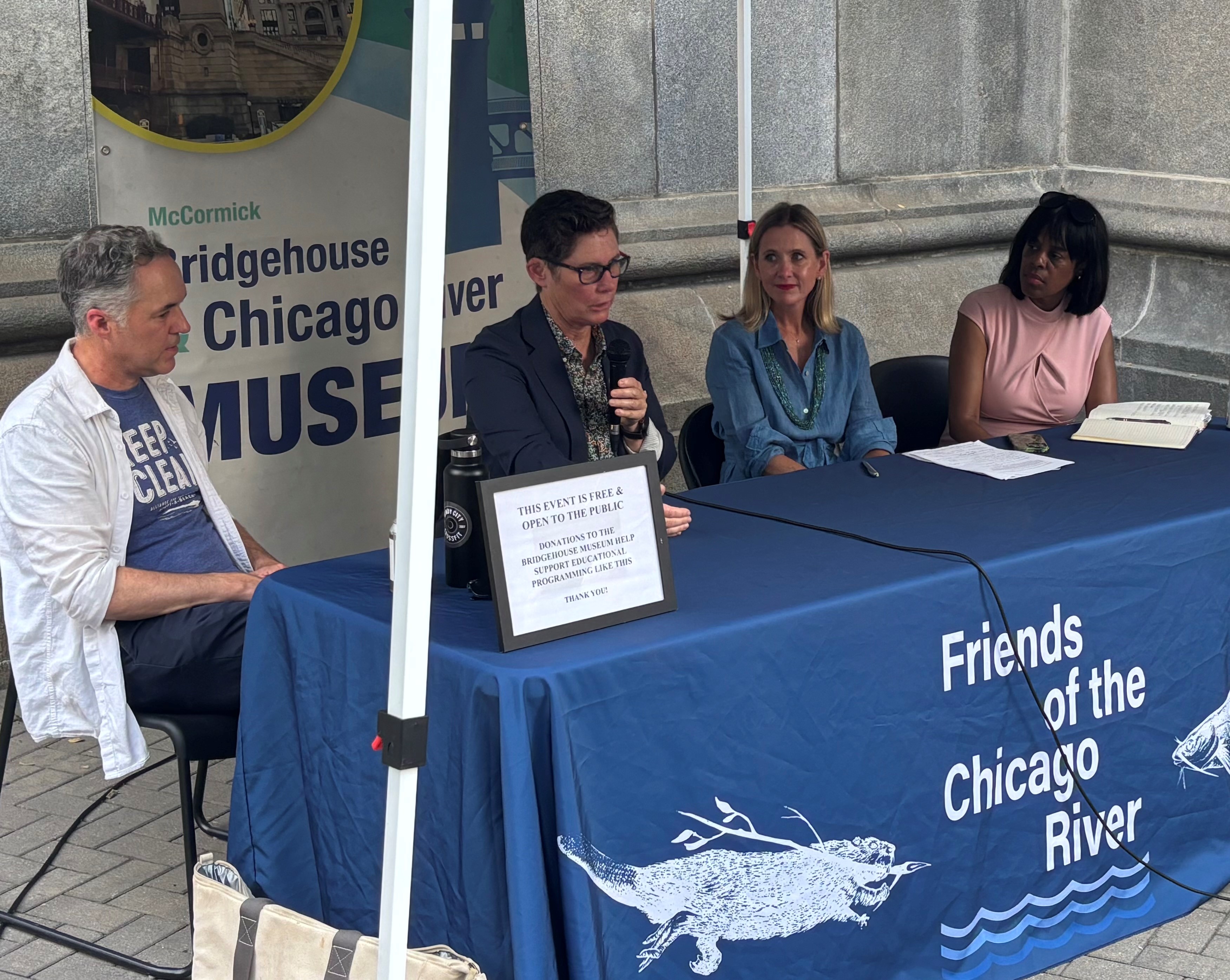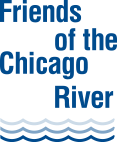Plastic Pollution and Water Quality Take Center Stage at the Bridgehouse Museum
 (left to right) Dr. Tim Hoellein, of Loyola University, Andrea Densham of the Alliance for the Great Lakes, Cook County Commissioner Bridget Degnen, and Tannis Williamson of the City of Chicago’s Department of Environment..
(left to right) Dr. Tim Hoellein, of Loyola University, Andrea Densham of the Alliance for the Great Lakes, Cook County Commissioner Bridget Degnen, and Tannis Williamson of the City of Chicago’s Department of Environment..
At Friends' Happy Hour Speaker Series on august 4, more than 50 guests gathered along the Chicago Riverwalk at Friends’ McCormick Bridgehouse & Chicago River Museum for an engaging panel discussion focused on plastic pollution and the health of our local waterways. The conversation featured experts from the fields of science, government, and advocacy who explored the root causes of plastic pollution, the challenges to addressing it, and actionable solutions to help protect the Chicago-Calumet River system from plastic pollution.
Dr. Tim Hoellein of Loyola University Chicago, shared his findings from his research on the types of plastic most commonly found in Chicago’s rivers, and the area where they tend to accumulate. “The plastic we’re finding in our local waterways reflects what we’re eating and drinking, much of it from food and beverage packaging,” said Dr. Hoellein. “In a way it’s empowering: we know the source, so we can change our behaviors and systems to fix it.”
Cook County Commissioner Bridget Degnan talked about what she called “the power of the purse,” noting that Cook County has updated its procurement policies to reduce the single-use plastics it purchases and distributes.
Tannis Williamson from the City of Chicago’s Department of Environment, noted that our landfills are filling up: with only nine years of space available, the need to reduce waste at the source has never been more urgent.
Andrea Densham from Alliance for the Great Lakes, highlighted the importance of upstream solutions, such as producer responsibility and circular product design to reduce plastics at the source, alongside coordinated, Great Lakes-wide action. She noted new basin-wide microplastics monitoring protocols and ecological risk-assessment methods under the Great Lakes Water Quality Agreement as a critical step toward understanding the scope of the problem and informing effective policy solutions.
The panel, moderated by Friends’ Watershed Policy Manager Tessa Murray, also highlighted Friends’ own work, including the Litter Free Chicago-Calumet River initiative, our partnership with Dr. Hoellein on data-driven advocacy, a growing network of cleanup supply stations, cleanup events, and the launch of the region’s first Chicago River Trash Trap.
Join us for the next Happy Hour Speaker Series on Thursday, August 21 for a discussion entitled Out in Nature: Creating Safe Spaces in Nature.
Friends’ speaker series takes place every other Thursday from 5:15 to 6:15 p.m. through September on the museum's outdoor plaza. The series is free and open to the public, and donations to Friends of the Chicago River are encouraged to support the Bridgehouse Museum programming.
Visit our website to learn more about upcoming topics and featured speakers.
Photo: (left to right) Dr. Tim Hoellein, of Loyola University, Andrea Densham of the Alliance for the Great Lakes, Cook County Commissioner Bridget Degnen, and Tannis Williamson of the City of Chicago’s Department of Environment.

